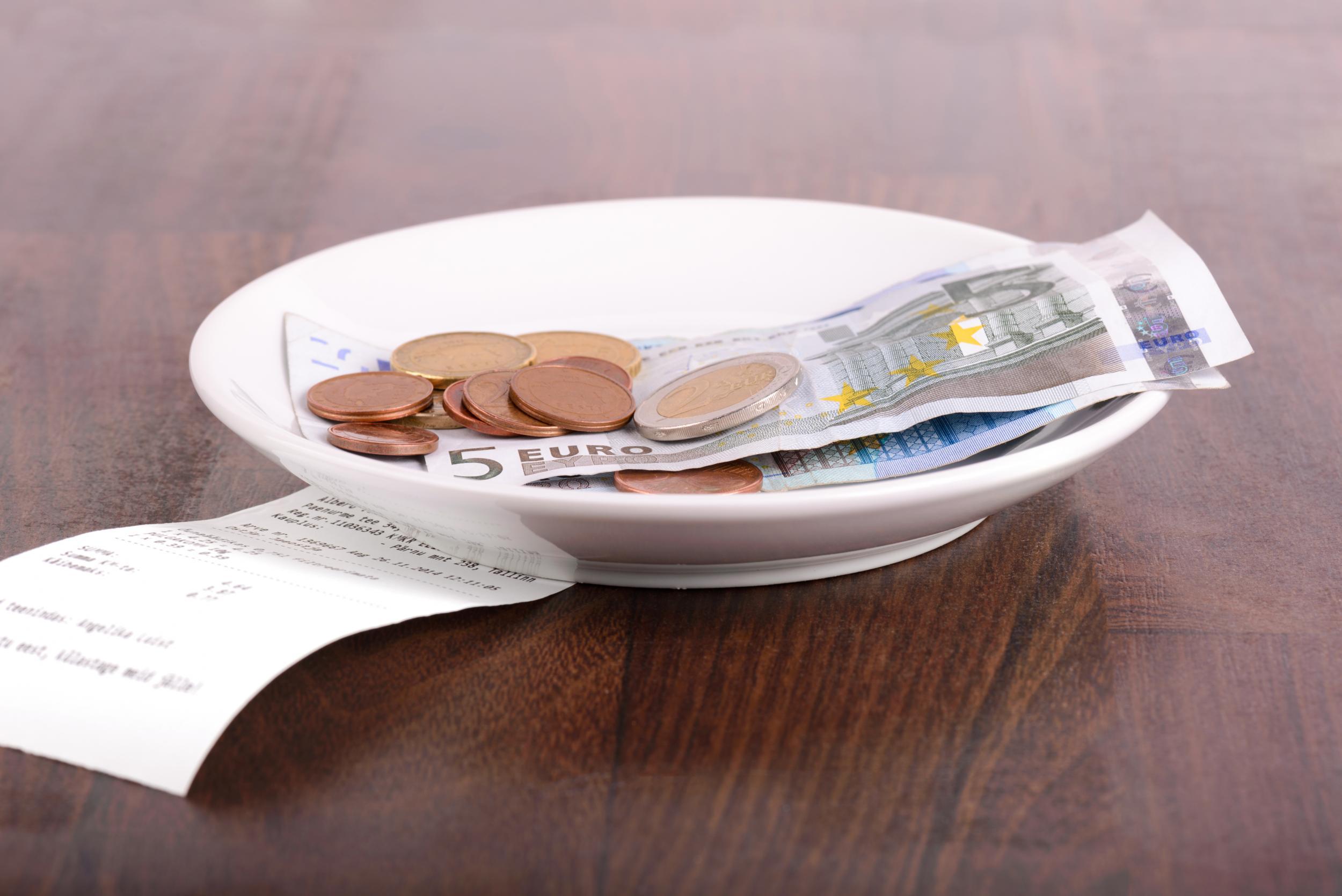The tipping point: Why you should tip well in the US, meagrely in Europe and thoughtfully on cruise ships
The Man Who Pays His Way, and sometimes a little more

Your support helps us to tell the story
From reproductive rights to climate change to Big Tech, The Independent is on the ground when the story is developing. Whether it's investigating the financials of Elon Musk's pro-Trump PAC or producing our latest documentary, 'The A Word', which shines a light on the American women fighting for reproductive rights, we know how important it is to parse out the facts from the messaging.
At such a critical moment in US history, we need reporters on the ground. Your donation allows us to keep sending journalists to speak to both sides of the story.
The Independent is trusted by Americans across the entire political spectrum. And unlike many other quality news outlets, we choose not to lock Americans out of our reporting and analysis with paywalls. We believe quality journalism should be available to everyone, paid for by those who can afford it.
Your support makes all the difference.In restaurants in Britain, I strive to tip adequately. In eateries with a 10, 12.5 or even 15 per cent “suggested gratuity”, I always comply with the recommendation – and try to pay it in cash, rather than adding the amount to the credit card total, to increase the chances the money will go to the hard-working staff.
To pay less than the proposed amount would be a statement that the service was not up to scratch; it’s better to explain the problem and invite the restaurant to solve it, rather than just make a point when the bill arrives.
At that great Thai culinary institution, Marie’s Cafe in the skirts of Waterloo station on London’s South Bank, I rarely leave less than 20 per cent on the grounds that the prices are way too low, which explains the near-constant queue. Besides, it’s an economical way to persuade someone that I am not always a parsimonious misery.
Across the Channel and the Atlantic, the tipping points are different. Travellers who have been told that 10 per cent is the correct amount to tip worldwide are sadly misguided almost everywhere. In most parts of the world – including our European favourites of France, Spain, Portugal, Italy and Greece – a €5 tip on a €50 bill is too much. A couple of euros is ample, and if you feel the pathetic pound has slumped too low for comfort then feel relaxed about not tipping: staff are zero-tolerant.
I always apply the 0 per cent principle in Switzerland (though the further sterling sinks, the more I am to be found foraging for picnic fare in a supermarket or stretching out a single cup of coffee in the Jugendstil branch of McDonald’s outside Basel’s main railway station; tipping is not expected in either environment).
In Japan and Korea, leaving cash in the dish may be regarded as overpaying, with the waiter pursuing you to hand back the cash. In the US, though, if a waiter is chasing you down the street that is because you have either neglected to tip, or (possibly even more offensive) added only 10 per cent.
Fifteen per cent is the least you should ever tip in America. That is partly because of a minimum-wage waiver for tipped employees: bars and restaurants can pay as little as $2.13 per hour to waiting staff and bartenders. Some states insist on higher levels, but even in enlightened Massachusetts, the $11 per hour state-wide minimum drops by two-thirds for tipped staff to just $3.75.
Customers who fail to help make up the difference are effectively awarding themselves a discounted meal at the expense of the waiting staff. Pay less than 15 per cent only if you wish to make a statement that the service was lousy.
In other settings in which a tip is expected, don’t rely on official advice. Even though the Nevada Taxicab Authority says “Tips or gratuities to taxi drivers in Las Vegas are optional and not required,” I suggest you aim for a minimum 15 per cent (and at that level expect a scowl rather than a smile).
On most cruise ships, passengers are strenuously encouraged to tip, typically by having a stipulated amount – around £10 per person per day – added to their on-board account.
While American cruisers, in my experience, are perfectly happy with this arrangement and often pre-pay for service they have yet to experience, British passengers are not. I am one of them. The expected gratuities comprise a thinly veiled extra charge that pushes up the cost of the trip by as much as 10 per cent.
By declining to pay it, and instead rewarding crew members individually, you support the contention that paying tips at a set amount in advance is a ridiculous principle, and it would do everyone a favour if the charges were included in the headline fare – as enlightened cruise lines such as Thomson, Saga and Silversea already do.
The cruise industry really ought to stick to the spirit of the law; if they push their luck on pricing, they might find more questions being asked about the VAT-free status of UK voyages.
Just saying.
Join our commenting forum
Join thought-provoking conversations, follow other Independent readers and see their replies
Comments